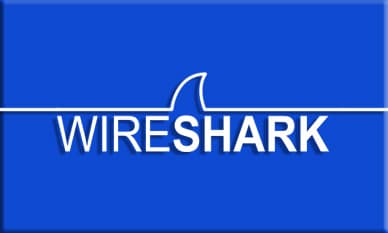
Module 1: Wireshark Fundamentals
- Introduction to Wireshark
- When to use Wireshark
- Where to physically connect
- Wireshark Graphical User Interface
- Capturing network traffic
Labs:
- Install Wireshark
- Explore Wireshark installation
- Capture and save network traffic
- Understanding the packet details pane
Module 2: Viewing network protocols with Wireshark
- Capture filters
- Display filters
- Preferences
- Time stamps
- Mark and ignore packets
- Import and export packet captures
Labs:
- Capture filters
- Display filters
Module 3: Analyzing tools and troubleshooting techniques
- Troubleshooting methodology
- Configuration profiles
- Preferences
- Creating coloring rules
- Establishing a baseline
- Leveraging Wireshark statistical reports and graphs
Labs:
- Custom profile
- Coloring rules
- Traffic baselines
Module 4: Analyze and troubleshoot Layer 2 protocols
- Ethernet frames
- MAC addresses
- ARP request/response procedure
- STP
- BPDU format
- Bridge selection
- Port states
- VLANs
- 802.1Q frame encapsulation
Labs:
- Ethernet
- ARP
- STP
- 802.1Q
Module 5: Analyze and troubleshoot wireless protocols
- How to sniff wireless networks
- 802.11 WLAN traffic
- Radiotap information
- Beacons and network capabilities
- ZigBee and ZigBee Pro
Labs:
- RadioTap
- IEEE 802.11
- ZigBee
Module 6: Analyze and troubleshoot /P
- IPv4 header
- IPv4 address
- IP packet fragmentation
- ICMP messaging
- RPL and 6LoWPAN to support the IoT
Labs:
- IP
- ICMP
- RPL / 6LoWPAN (OPTIONAL)
Module 7: Analyze and troubleshoot TCP
- Establishing a TCP connection
- TCP header
- Port numbers and sockets
- Selective acknowledgements
- Sliding window
- Contention and advertised receiving windows
- Congestion control
Labs:
- TCP 3-Way Handshake
- TCP fields
- TCP traffic
Module 8: Analyze and troubleshoot UDP and higher level protocols
- Compare and contrast TCP and UDP
- UDP header
- DHCP communications
- DNS process
- HTTP/HTTPS
Labs:
- UDP, DNS and DHCP
- HTTP
Module 9: Course wrap up and best practices
- Checklists
- Managing trace files
- Course wrap up
This course is designed for advanced IT networking professionals who work on wired and wireless networks and need to perform network assessment, traffic analysis, and enterprise-wide network troubleshooting.
Students must be experienced with deploying, managing, and operating enterprise-level networks. Learners must also have a full understanding of the TCP/IP protocol stack and IP routing. No prior experience with Wireshark is required.
Before attending this class, students must hold a Cisco CCNA Routing and Switching Certification, Net+ or equivalent network certification.
In this class, you will learn how to:
- Understand key network protocols in today’s enterprise wired and wireless networks. Analyzed protocols include: HTTP, TCP, UDP, IP, DHCP, DNS, ICMP, Ethernet, IEEE 802.11, Bluetooth, ZigBee, and ZigBee IP.
- View and analyze network traffic.
- Capture and filter network traffic.
- Analyze previously captured network traffic.
- Develop reusable profiles for analyzing and troubleshooting network traffic.
- Interpret the Wireshark graphs and statistical reports.
- Identify and troubleshoot common network problems, including:
Latency.
Packet errors.
Bandwidth performance issues.
 Print Page
Print Page